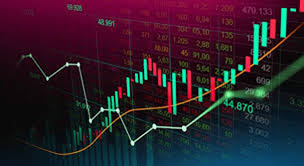
The Ultimate Guide to Trading in Forex: Strategies, Tips, and Insights
Forex trading is a global phenomenon that attracts millions of traders every day. As the largest financial market in the world, the foreign exchange market, or forex, operates 24 hours a day, allowing traders to buy and sell currencies in real-time. For those looking to delve into this exciting world, resources like trading in forex trader-maroc.com can provide invaluable insights and strategies.
Understanding Forex Trading
Forex trading involves the exchange of one currency for another, with the ultimate goal of making a profit from fluctuations in currency prices. The market is decentralized, meaning that it does not have a central exchange; rather, transactions occur over-the-counter between two parties. This structure allows flexible trading opportunities but also requires traders to be well-informed and strategic.
The Major Currency Pairs
Forex trading primarily involves currency pairs, which consist of two currencies. The first currency listed is the base currency, while the second is called the quote currency. The most traded currency pairs in the forex market include:
- EUR/USD – Euro/US Dollar
- USD/JPY – US Dollar/Japanese Yen
- GBP/USD – British Pound/US Dollar
- USD/CHF – US Dollar/Swiss Franc
- AUD/USD – Australian Dollar/US Dollar
These currency pairs are categorized into three groups: major, minor, and exotic. Major pairs always involve the US Dollar and are the most liquid, while minor pairs do not include the dollar. Exotic pairs combine a major currency with one from a developing economy, often resulting in higher volatility.
Key Concepts in Forex Trading
Several concepts are essential for anyone interested in trading forex:
1. Leverage
Leverage allows traders to control a larger position in the market with a smaller amount of capital. For example, a leverage of 100:1 means that a trader can open a position worth $100,000 by only putting down $1,000. While leverage can amplify profits, it also increases the risk of significant losses.
2. Pips

A pip (percentage in point) is the smallest price movement in the forex market. In most currency pairs, a pip is equivalent to a change of 0.0001 in the exchange rate. Understanding pips is crucial for calculating profits and losses.
3. Spreads
The spread is the difference between the bid price (what buyers pay) and the ask price (what sellers receive). Different brokers offer varying spreads, and either fixed or variable spreads can be found in the market.
Strategies for Successful Forex Trading
Effective forex trading often relies on a well-defined strategy. Below are some common trading strategies that can enhance your potential for success:
1. Day Trading
Day trading involves opening and closing positions within the same trading day, aiming to capitalize on short-term price movements. Successful day traders typically use technical analysis and rapid decision-making skills.
2. Swing Trading
Swing trading focuses on capturing price swings over several days or weeks. Traders using this strategy typically rely on both technical indicators and fundamental analysis to identify potential reversals or breakout points.
3. Position Trading
Position trading is a long-term investment strategy where traders hold positions for weeks, months, or even years. This approach requires a fundamental understanding of economic factors influencing currency movements.
Risk Management in Forex Trading

Effective risk management is crucial in forex trading, as it helps protect your capital from significant losses. Here are some fundamental principles of risk management:
1. Use Stop-Loss Orders
Stop-loss orders automatically close a position when the market reaches a predetermined price. This helps limit potential losses and prevents emotional decision-making.
2. Risk Only What You Can Afford to Lose
It’s essential to set a budget for trading and only risk a small percentage of your trading capital on each trade. Many traders recommend risking no more than 1-2% of total capital on a single trade.
Choosing the Right Broker
Selecting a reliable forex broker is a vital step in starting your trading journey. Consider the following factors when choosing a broker:
- Regulation and Licenses: Ensure the broker is regulated by a recognized authority.
- Trading Platform: The trading platform should be user-friendly and equipped with the necessary tools for analysis and execution.
- Spreads and Fees: Compare spreads and trading fees to find a broker that offers competitive rates.
- Customer Service: A responsive customer service team can provide assistance when needed.
The Importance of Continuing Education
The forex market constantly evolves, influenced by political events, economic reports, and market sentiment. It is crucial for traders to continuously educate themselves through reading, taking courses, or joining trading communities. Staying updated with market trends will enhance your trading skills and improve your overall performance.
Conclusion
Forex trading is a rewarding yet challenging endeavor that requires careful planning and knowledge. By understanding the fundamentals, implementing effective strategies, and continuously educating yourself, you can navigate the complexities of the forex market. Remember, trading requires patience, practice, and a well-defined approach to risk management. Embrace the journey, and with diligence and dedication, you can become a successful forex trader.
